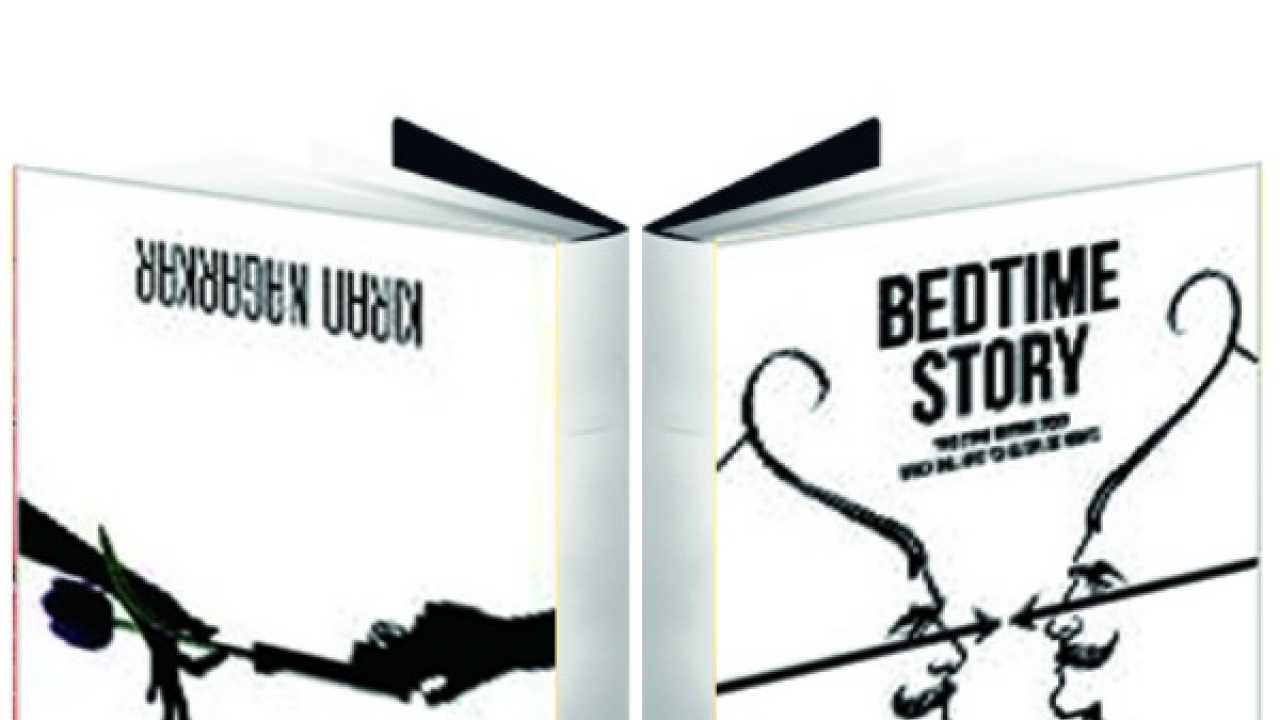
Book: BEDTIME STORY: A PLAY
Book: BLACK TULIP: A SCREENPLAY
Author: Kiran Nagarkar
Publisher: HarperCollins
Pages: 196+200
Price: 650
Kiran Nagarkar wrote Bedtime Story in 1977, in response to the Emergency. It was meant to remind audiences, he writes in the impassioned introduction to this, the first-ever print edition of the play, of the appalling consequences of the general 'what-can-we-do' attitude. But what's amazing is how, nearly 40 years since, the text continues to speak to audiences.
Here's, for instance, Suyodhan's (Nagarkar substitutes the "du", a prefix for evil, in Duryodhan with "su", the prefix signifying good, which immediately serves to complicate the epic's moral universe) list of things he wagers on the gaming table: "The Peacock Throne. Our Stud Farm. NIA. Topkapi. All the rights to Deep Throat. Daughter of Deep Throat and Deeper than Deep Throat. The Andaman and Nicobar Islands. The brothel chain from Santa Barbara to Bangkok. All our nuclear submarines. My collection of Chinese Ming Jade. The Kohinoor diamond. Mitsubishi Corporation. The formula for the deadliest and latest in biological warfare. Our army. Our navy.
Our air force."
The rogues gallery of those responsible for the inequities and brutalities of the world, clearly, haven't changed much in four decades. As Nagarkar says, "Bedtime Story is far more relevant today than when the Emergency was on."
No wonder, the play was censored at the time it was published, and rarely staged since. Its publication even now was a chancy affair as the professor at the University of Michigan at Ann Arbor, who had prepared the text for publication, left to join Columbia before it could see the light of day.
Perhaps, what riled censor boards and their political masters about Bedtime Story was that Nagarkar had reworked characters and episodes from the Mahabharata – the Eklavya story, the game of dice and the disrobing of Draupadi, the battle in Kurukshetra. After all, censor boards like their epics just the way they've read them in Amar Chitra Katha as children – and any hint of alternative readings, much less deviant ones that showed up those they consider "heroes" in a poor light were to be excised as a "stain on our culture". Remember what happened to AK Ramanujan's essay, Three Hundred Ramayans, which Delhi University deemed unacceptable for its students? Or the fate of Wendy Doniger's book on the Hindus?
Nagarkar, naturally, has a very different take. For him, the Mahabharata itself contains the germs of such deviant readings, and is a sign of its greatness. "It is such a powerful story. I am a very old fashioned person — gurus are important for me. But look at this guru whom we are all supposed to love and respect – what a smart move he makes. 'Give me your thumb,'." Nagarkar's Eklavya is smarter. He presents Drona with a mud thumb!
Black Tulip, the other part of this book, is a screenplay, Nagarkar's take on the old-fashioned cops-and-robbers genre, films like A Fish Called Wanda that pitted the wits of a criminal's against those of the police, and where characterization and humour were more important than high-tech gadgetry. Black Tulip is a master criminal, actually a pretty young yoga teacher called Rani, while the police officer hot on her heels is called ACP Regina. Nagarkar is having a bit of fun as both Rani and Regina are the Hindi and Latin terms, respectively, for the same word — queen.
A fast-paced, entertaining caper, Black Tulip would make an interesting, slightly ironic heist drama. Is Anurag Kashyap reading?